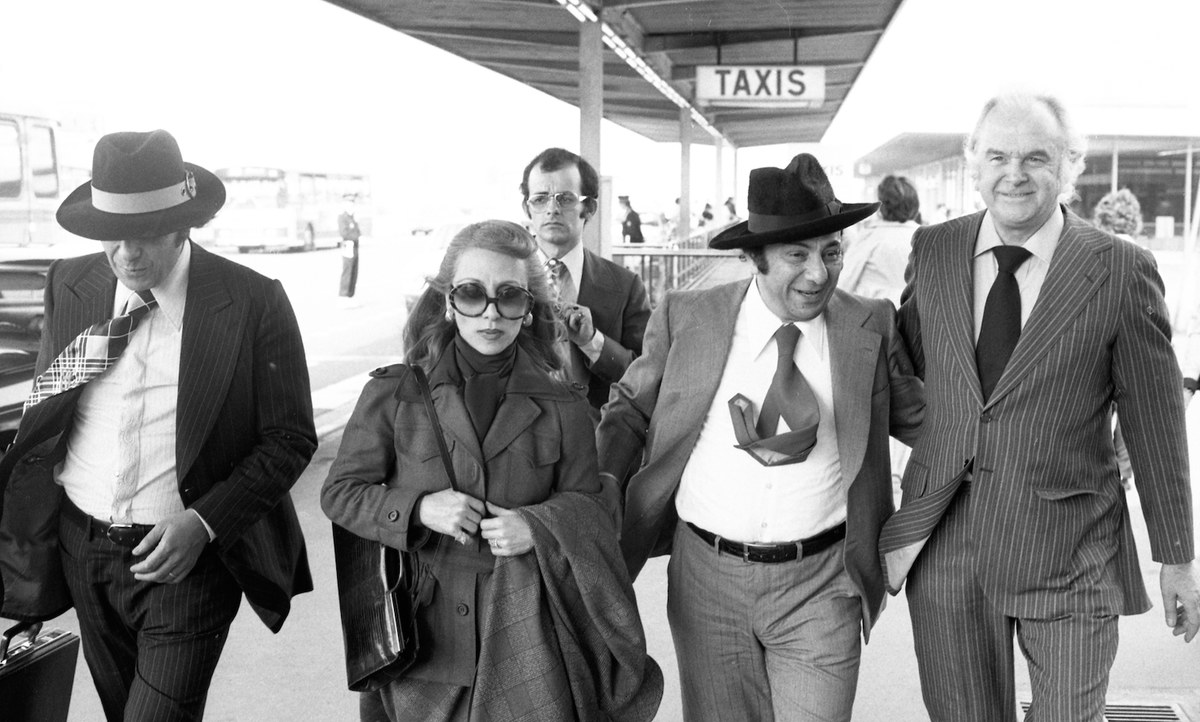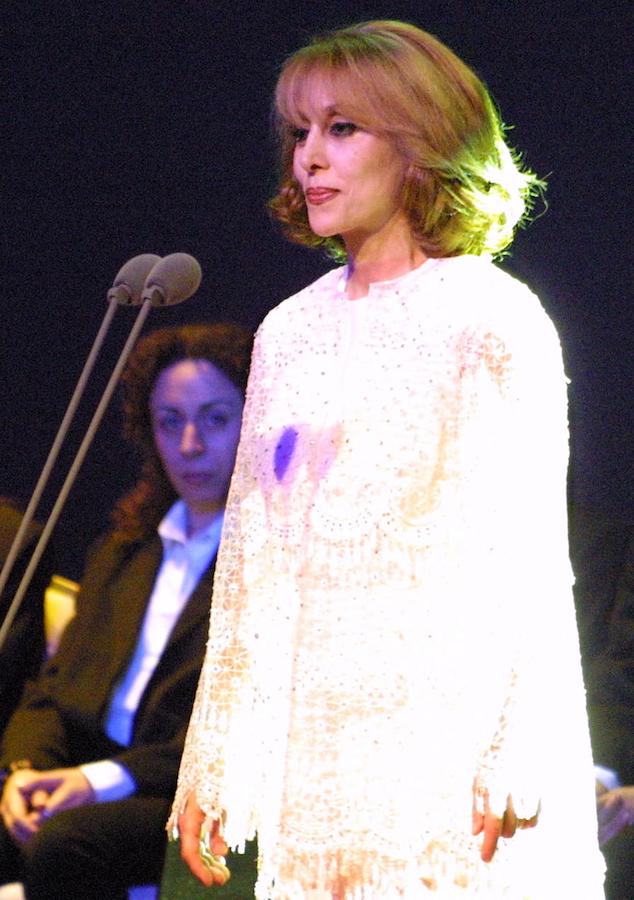Life Style: 20 tombs dating back 2,500 years found at Egypt archaeological site

DUBAI: She is the Arab world’s greatest living musical icon, but Fayrouz remains an enigma. She retains a sometimes-infuriating aura of mystery, rarely giving interviews and ardently protecting the privacy of her family. On stage she appears devoid of emotion — motionless and expressionless. Those characteristics have themselves become iconic, with Fayrouz’s striking but emotionless features adorning everything from handbags and posters to Beirut’s city walls.
Born Nouhad Haddad in 1934, during the course of her career Fayrouz has recorded hundreds of songs, starred in dozens of musicals and movies, and toured the world. From 1957 onwards, when she first performed at the Baalbeck International Festival, she has become one of the Arab world’s most beloved singers. And in doing so she would unite her often-fractious homeland.
All Lebanese remember the first time they heard Fayrouz. For Tania Saleh, it was during a drive to Syria to escape the beginning of the Lebanese Civil War. She remembers one song in particular — “Roudani Ila Biladi” (Take Me Back To My Homeland).
“That song really marked me,” says Saleh, a singer-songwriter and visual artist. “My mother was crying while she was driving and the song created this really intense emotional moment. And I remember thinking, ‘How can a song affect someone so much? It’s just a song.’ But it affected me, too, in a manner that I didn’t understand back then.”
Fayrouz remained in Lebanon for the entirety of the war and refused to take sides. Although she continued to sing in venues across the world, she did not perform in Lebanon until the conflict was over. This neutrality, and the patriotic nature of many of her songs, meant she was a rare symbol of national unity, with all sides listening to her music throughout the 15 years of civil war. She was, as Saleh says, an “emotional anchor for all Lebanese during the war,” regardless of religion or political beliefs. When she released “Li Beirut“ (arranged and adapted by her son Ziad Rahbani) in 1984, Fayrouz and Beirut became inseparable. More than ever she embodied the very essence of what it meant to be Lebanese.
None of which would have been possible without the music of the Rahbani Brothers. Fayrouz, who was a chorus singer at Radio Lebanon in the early 1950s, met Mansour and Assi Rahbani through the composer Halim El-Roumi in 1951. She went on to marry Assi a few years later and together the trio would revolutionize popular Lebanese music. The Rahbani Brothers fused musical genres, including Levantine folkloric traditions and the music of Latin America, and incorporated both Western and Russian elements into their compositions. It was Fayrouz, however, who gave voice to their musical vision.
Fayrouz sang of an almost mythical Lebanon. She sang of love and desire, but also of an idealized Lebanese mountain village, of olive trees and jasmine, of vineyards and streams. “Lyrically, they created the Lebanon we now love,” says Saleh of the brothers, who followed in the footsteps of writers such as Khalil Gibran and Mikhail Naimy, who helped to forge a romanticized image of Lebanon that many of its citizens still cling to today.
As the Palestinian poet and film director Hind Shoufani notes, Fayrouz represents “the village girl, the stories of love, the fetching of fresh water, the mountain, the resistance, the power of the people; that kind of simple, beautiful daily existence that is in harmony with nature.” As such, her songs have an additional, heartbreaking poignancy, because the Lebanon she sings of bears no resemblance to the Lebanon of today. She sings of a fading dream — one that is shared by much of the Arab world.

That vision was rooted in Lebanon’s golden age, with Fayrouz intimately linked to the formation of a national cultural identity in the years following independence from France. As the acclaimed indie-music producer Zeid Hamdan says, Fayrouz would carry that identity “with elegance and depth like no other singer.”
Fayrouz and the Rahbani Brothers changed popular Arabic music forever. Umm Kulthoum, another icon of the Arab world, sang songs of love that could last for up to an hour and were deeply embedded in the tarab tradition. The songs of Fayrouz and the Rahbani Brothers, however, were far shorter, utilized the Lebanese dialect, and embraced new melodic forms.
“As a musician, I am very inspired by the dialect that Fayrouz sings,” says Hamdan, “arguably best known as one half of the trip-hop duo Soapkills. “It’s not only classical Arabic, it’s often modern Lebanese, and the Rahbanis — from Assi to Ziad — used the Lebanese dialect in a very clever way throughout their repertoire.”

Hamdan was introduced to Fayrouz in the late 1990s by Yasmine Hamdan (no relation), his Soapkills partner. Encouraged by her, he bought a double K7 cassette of Fayrouz’s “Andaloussiyat” and immediately fell in love with three tracks, one of which was “Ya Man Hawa.”
“The lyrics are simply incredible,” he says. “It’s a form of poetry that is several hundred years old called muwashshah and I wish I could do justice to the beauty of the words.” Another was “Yara El Jadayel,” on which, at a certain point, Fayrouz “sings at a very high pitch and very softly, the melody almost whispered on a piano arpeggio”.
It is the wonder and versatility of Fayrouz’s voice that continues to entrance audiences across the world. El-Roumi thought her voice so beautiful that he gave her the nickname Fayrouz (Arabic for turquoise) and went on to become the first person to compose for her.
“Fayrouz has one of the most distinctive voices in the Arab world,” says Egyptian-Belgian singer Natacha Atlas, who has worked with the likes of Peter Gabriel and Nitin Sawhney. “One can always tell that it’s (her) voice. It is as delicate as it is beautiful and strong, and her voice’s ability to (carry) such strong emotions is always extraordinary. She is one of my greatest influences. When I hear her, I often melt in tears at the sheer beauty of her voice and how it also evokes a deep nostalgia in me for the Middle East as it once was, and how everything has changed almost beyond recognition.”
Fayrouz’s fame outside of the Levant can also be traced back to her support of the Palestinian cause. As early as 1957, Fayrouz and the Rahbani Brothers released “Rajioun” (We Will Return), a collection of pro-Palestinian anthems. This was followed in 1967 by the release of “Al-Quds Fil Bal” (Jerusalem In My Heart), and as recently as 2018 she was still dedicating songs to Palestinians killed on Gaza’s border with Israel.
When her husband’s health began to fail in the 1970s, Fayrouz began to collaborate more closely with her son Ziad — the eldest of her four children. One of the albums composed and arranged by him was “Wahdon,” which was released on the Zida record label in 1979 and includes the song “Al Bosta.”
“I cherish and love her experience with Ziad,” says Saleh. “The albums that she did with him took her to jazz and bossa nova and sometimes to funk. This gave Fayrouz another dimension — that of the risk taker. She went out of her comfort zone, and that is very rare.”
This helped to cement her reputation with a younger generation and she continues to evoke a deep sense of nostalgia, not only among the Lebanese, but across the Levant and North Africa. Many Lebanese still start their day listening to Fayrouz’s songs and, despite family disputes over royalties, her controversial performance in Damascus in 2008, and accusations of plagiarism directed at the Rahbani family, her status as a cultural icon endures. When the French President Emmanuel Macron visited Lebanon in 2020, he chose the home of Fayrouz as one of his first ports of call, not those of the country’s political leaders.
“They described this beautiful Lebanon and they made us dream that this is our country, which was actually just a picture they had created,” says Saleh of Fayrouz and the Rahbani Brothers. “We were looking for it: ‘Where is this Lebanon you are talking about guys?’ We were always trying to find it but we never did. But thankfully they did create this image, because the bond that we have with our country is mainly because of them.”
Noting that the news was copied from another site and all rights reserved to the original source.
xnxx,
xvideos,
porn,
porn,
xnxx,
Phim sex,
mp3 download,
sex 4K,
Straka Pga,
gay teen porn,
Hentai haven,
free Hentai,
xnxx,
xvideos,
porn,
porn,
xnxx,
Phim sex,
mp3 download,
sex 4K,
Straka Pga,
gay teen porn,
Hentai haven,
free Hentai,




